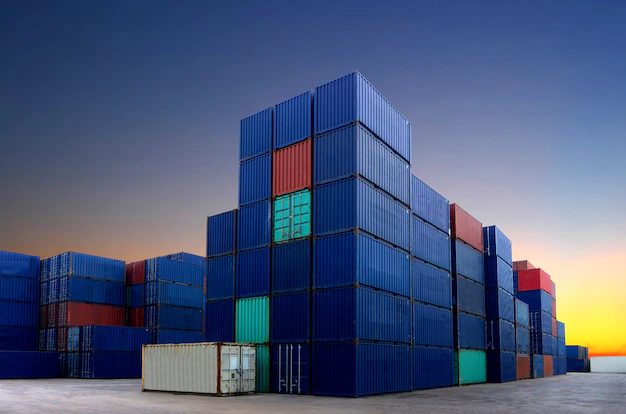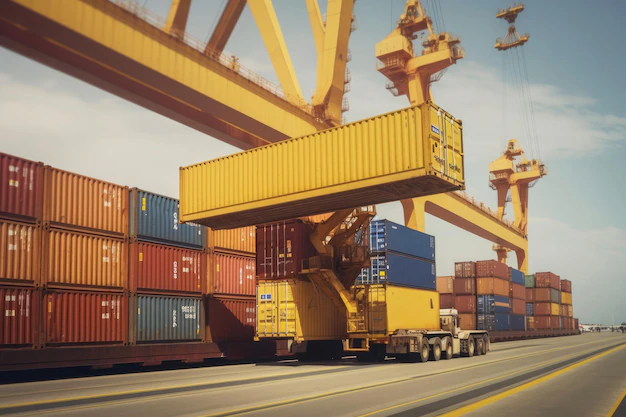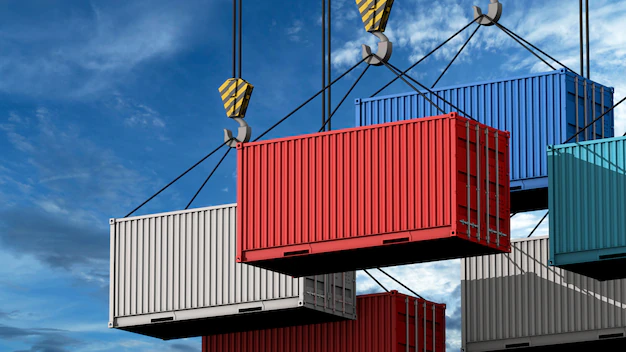
In the world of global trade and logistics, the efficient movement of goods is of paramount importance. One of the key elements in ensuring smooth and cost-effective transportation is the choice of freight containers.
Among the various options available, shipping container solutions like SCF containers have emerged as a smart choice for transporting goods across the globe. In this blog post, we will delve into the reasons why shipping containers are an intelligent and practical choice for freight, examining their history, versatility, sustainability, and economic advantages.
A Brief History of Shipping Containers
Before we delve into the reasons why shipping containers have become a smart choice for freight, it’s important to understand their historical significance. The modern shipping container revolutionized the way goods are transported worldwide.
In the mid-20th century, an American entrepreneur named Malcolm McLean invented the standardized shipping container. This innovation marked a turning point in the shipping industry. Prior to this, goods were loaded and unloaded from ships individually, making the process slow, labor-intensive, and costly. With the introduction of shipping containers, goods could be loaded into standardized, stackable units, allowing for efficient handling and rapid transportation.
Versatility and Standardization
One of the primary reasons why shipping containers are a smart choice for freight is their versatility and standardization. These containers come in standardized sizes, with the most common being 20-foot and 40-foot containers. This standardization ensures that containers can be easily transported, stacked, and loaded onto various modes of transportation, including ships, trucks, and trains.
The uniformity of shipping containers simplifies the logistics of moving goods from one location to another. Whether you’re shipping electronics, textiles, machinery, or perishable goods, there is likely a shipping container size and type that suits your needs. This versatility minimizes the need for custom packaging and handling, saving both time and money in the shipping process.
Security and Protection

Shipping containers are built to withstand harsh weather conditions, extreme temperatures, and the rigors of long-distance transportation. Made from steel or aluminum, they provide a high level of security and protection for goods during transit.
The robust construction of shipping containers ensures that the contents remain safe from theft, damage, and environmental factors. Additionally, these containers are sealed tightly to prevent moisture, dust, and pests from entering, ensuring the integrity of the cargo. This security and protection make shipping containers an excellent choice for shipping valuable or sensitive goods.
Cost-Efficiency
Cost efficiency is a crucial factor in the logistics and freight industry. Shipping containers offer significant cost advantages compared to other methods of transportation.
Here are some reasons why:
- Economies of Scale: Due to their standardized sizes, shipping containers are efficiently for loading onto large cargo vessels. This results in economies of scale, where larger shipments can be transported at a lower cost per unit.
- Reduced Handling: The use of shipping containers reduces the need for multiple handling points during transportation. At the point of origin, they load the containers and then unload at the destination, minimizing labor costs and the risk of damage to goods.
- Intermodal Transportation: Shipping containers can seamlessly transition between different modes of transportation, such as ships, trucks, and trains. This intermodal capability streamlines the transportation process and reduces the overall cost.
- Reusability: Shipping containers are durable and designed for multiple trips. This reusability minimizes the need for constant replacement, leading to long-term cost savings.
Environmental Sustainability
In an era where environmental concerns are paramount, shipping containers offer sustainability benefits.
Here’s how they contribute to a greener supply chain:
- Reduced Packaging Waste: The use of shipping containers reduces the need for excessive packaging materials, such as wooden crates or cardboard boxes. This minimizes packaging waste and promotes sustainable practices.
- Efficient Transportation: Standardized containers optimize space utilization on cargo ships and other transport modes, reducing the number of trips required to move goods. This results in lower fuel consumption and greenhouse gas emissions.
- Repurposing and Recycling: At the end of their life cycle, there are various purposes for using shipping containers such as storage units, housing, or mobile offices. This extends their usability and reduces the environmental impact.
- Reduced Energy Consumption: The energy required to produce shipping containers is significantly lower than that needed to create alternative transportation and storage solutions, such as wooden crates.
Global Reach

One of the key advantages of using shipping containers for freight is their ability to reach virtually any corner of the globe. The design of global network of ports, terminals, and transportation infrastructure is to accommodate shipping containers. It makes them an ideal choice for businesses engaged in international trade.
Whether you’re shipping goods from Asia to Europe, North America to South America, or any other route, shipping containers offer a reliable and efficient means of transportation. This global reach allows businesses to tap into a wide range of markets and customer bases.
Adaptability to Varied Cargo Types
There is no limitations to specific types of cargo in Shipping containers. They can accommodate a wide range of goods, from electronics and textiles to machinery and perishable items. The adaptability of shipping containers makes them suitable for various industries, including manufacturing, agriculture, retail, and more.
Moreover, specialized containers are available to meet specific cargo requirements. For example, there are temperature control systems in the refrigerated containers (reefers). It makes them ideal for transporting perishable goods like fruits, vegetables, and pharmaceuticals. Open-top containers and flat-rack containers are perfect for carrying oversized or bulk cargo.
In conclusion, shipping containers have emerged as a smart choice for freight due to their rich history, versatility, security, cost-efficiency, environmental sustainability, global reach, and adaptability. Their standardized sizes and intermodal capabilities have revolutionized the logistics industry, making it easier and more cost-effective to transport goods across the world.
As businesses continue to navigate the complexities of global trade, shipping containers will remain an essential tool for efficient and reliable freight transportation. Their enduring legacy as a symbol of globalization underscores their significance in the modern economy, and their role in shaping the future of international commerce is undeniable.
Read Also:




























